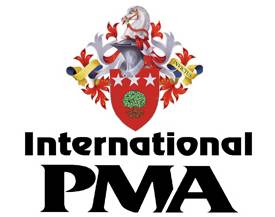Management Information Systems
Course Aims
- To equip the student with the understanding of Information Technology and its impact on business and strategic management.
- To provide the student with the ability to critically assess computing and information needs of the organisation.
- To enable the student to evaluate and implement Decision Support Systems
Learning Outcomes
At the end of the course the student will have the ability to:
- To understand the importance of computing and IT for organisations today.
- To have the requisite knowledge to evaluate computing and IT needs of the organization
- To understand how information systems can be applied within the strategic context of the organisation.
- To understand the key issues in the development of information systems for operational, tactical and strategic purposes
- To design appropriate systems to support the strategic efforts of the organization
- To evaluate and design Enterprise Resources Systems, Data Mining, and Knowledge Management and other Decision Support Systems.
Course Syllabus
- Information Systems
- Concepts of Systems and Organizations
- Types and forms of Information Systems
- Information Technology and its impact on Strategic Management
- Business Process Reengineering and Information Technology
- Computer Systems
- Understanding basic types of Computer Hardware and Software
- Computer Files and Database Management Systems
- Communications Systems, Networking and Client/Server systems
- Distributed Systems, intranets, extranets and the Internet
- Business Applications and IT
- Analysis and development of Operational Information Systems
- Analysis and development of Tactical and Strategic Information Systems
- Development and use of Decision Support Systems and Expert Systems
- Enterprise Resource Planning Systems
- Planning and Development of Information Systems
- Planning for Information Systems
- Systems Analysis and Design including Structured Methods, CASE
- Information Systems Management
- Organisation of Information Systems
- Control of IT and Computing Systems
- Security Issues in Information Systems
- Decision Support Systems
- Data Warehousing, Access, Analysis, Mining, and Visualization.
- Modeling and Analysis.
- Decision Support System Development.
- Collaborative Computing Technologies: Group Support Systems.
- Enterprise Decision Support Systems.
- Knowledge Management.
- Knowledge-Based Decision Support: Artificial Intelligence and Expert Systems.
- Inference Techniques.
- Intelligent Systems Development.
- Implementing and Integrating Management Support Systems.
Recommended Text
Book Title -: Managing the Digital Firm (8e)
Author -: Laudon & Laudon
Publisher -: Pearson/Prentice Hall
ISBN No -: 0-13-120681-8
Software Engineering
Course Aims
- To equip the student with the managerial skills to control effectively the computer system function for the organisation
- To understand the need for compliance with intellectual copyright
- To undertake financial analysis for new computer systems and information technology investment
Learning Outcomes
At the end of the course the student will have the ability to:
- Produce software specifications and requirements to meet the needs and objectives of users
- Define the risks inherent in software development projects
- Design a variety of software applications taking into consideration factors including interface design principles, user interaction,information delivery.
- Develop procedures for prototyping, quality management,testing, verification and validation
Course Syllabus
- Computer-based system engineering
- Emergent system properties
- Systems and their environment
- System modelling
- The system engineering process
- System procurement
- Software Processes
- Software process models
- Process iteration
- Software Specification
- Software design and implementation
- Software validation
- Software evolution
- Automated process support
- Project management
- Management activities
- Project planning
- Project scheduling
- Risk management
- Software requirements
- Functional and non-functional requirements
- User requirements
- System requirements
- The software requirements document
- Requirements engineering processes
- Feasibility studies
- Requirements elicitation and analysis
- Requirements validation
- Requirements management
- System Models
- Context models
- Behavioural models
- Data models
- Object models
- CASE workbenches
- Software prototyping
- Prototyping in the software process
- Rapid prototyping techniques
- User interface prototyping
- Formal Specification
- Formal specification in the software process
- Interface specification
- Behavioral specification
- Architectural design
- System structuring
- Control models
- Modular decomposition
- Domain-specific architectures
- Distributed systems design
- Multiprocessor architectures
- Client-server architectures
- Distributed object architectures
- CORBA
- Object-oriented design
- Objects and object classes
- An object-oriented design process
- Design evolution
- Real-time software design
- System design
- Real-time executives
- Monitoring and control systems
- Data acquisition systems
- User interface design
- User interface design principles
- User interaction
- Information presentation
- User support
- Interface evaluation
- Dependability
- Critical systems
- Availability and reliability
- Safety
- Security
- Critical systems specification
- Software reliability specification
- Safety specification
- Security specification
- Critical systems development
- Fault minimisation
- Fault tolerance
- Fault-tolerant architectures
- Safe system design
- Verification and validation
- Verification and validation planning
- Software inspections
- Automated static analysis
- Cleanroom software development
- Software testing
- Defect testing
- Integration testing
- Object-oriented testing
- Critical systems validation
- Formal methods and critical systems
- Reliability validation
- Safety assurance
- Security assessment
- Software cost estimation
- Productivity
- Estimation techniques
- Algorithmic cost modelling
- Project duration and staffing
- Quality management
- Quality assurance and standards
- Quality planning
- Quality control
- Software measurement and metrics
- Process Improvement
- Process and product quality
- Process analysis and modelling
- Process measurement
- The SEI Process Capability Maturity Model
- Process classification
- Software change
- Program evolution dynamics
- Software maintenance
- Architectural evolution
- Software re-engineering
- Source code translation
- Reverse engineering
- Program structure improvement
- Program modularisation
- Data re-engineering
- Configuration management
- Configuration management planning
- Change management
- Version and release management
- System building
- CASE tools for configuration management
Recommended Text
Book Title -: Principles of Information Systems (8e)
Author -: Stair & Reynolds
Publisher -: Thomson Course Technology
ISBN No -: 1-4239-0119-3
E-Commerce Marketing and Technology
Course Aims
- To understand and to apply the underlying technologies available for the provision and implementation e-commerce.
- To implement effective Internet marketing programs.
Learning Outcomes
At the end of the course the student will have the ability to:
- Discuss the various models of e-commerce for the organisation.
- Design and implement an effective e-commerce delivery system
- Design appropriate measures to deal effectively with security concerns of customers.
- Develop an effective Marketing strategy for e-commerce
Course Syllabus
- The Technology
- E-Commerce and E-Business
- Types of E-Commerce
- Communication Protocols for E-Business
- Network Security and E-Commerce
- Security Threats
- Internet Security Requirements (Secrecy, Integrity,Availability)
- Authentication, Encryption, Digital Payments, and Digital Money
- Server Platforms in E-Commerce
- Language for the Web: HTML, XML, and Beyond
- Searching Mechanisms
- Software Agents for E-Commerce
- Multimedia and Web-casting on the Web
- Packaged Solutions for E-Business
- ERP Systems
- Customer Relationship Management
- Marketing
- Fundamentals of Marketing
- Developing a Marketing strategy
- Marketing Research
- The Role of Online Marketplaces
- Branding
- Interactive Direct Marketing
Recommended Text
Book Title -: Internet Marketing and E-Commerce
Author -: Hanson & Kalyanam
Publisher -: South-Western/Cengage
ISBN No -: 13 978-0-324-42281-8
Additional Reading
Book Title -:Electronic Commerce (7e)
Author -: Gary Schneider
Publisher -: Thomson Course Technology
ISBN No -: 13 978-0-273-70752-3


